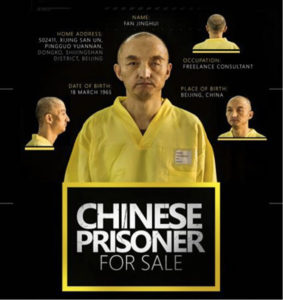In mid-September, the war with Islamic State (IS) arrived at China’s doorstep in the form of an online advertisement: ‘Chinese prisoner for sale’.
It featured a photograph of a man, Fan Jinghui 樊京辉, against a black backdrop. His face was battered and he was dressed in a yellow jumpsuit. The advertisement listed his profession as a freelance consultant and his place of birth as Beijing, China; it also published his home address.
IS held Fan Jinghui alongside a Norwegian hostage. This placed the Chinese government in a new situation. The Chinese leadership’s reluctance to get involved in conflicts abroad had previously sheltered its citizens from direct conflict with IS. Now the Chinese people demanded action.
While netizens called for Fan’s rescue and vigorously debated the correct course of action, the Chinese government remained largely mute. Censors scrubbed the Internet of the most impassioned calls for intervention to save Fan.
On 18 November, IS executed Fan and posted photos of the execution online. There was an outpouring of grief on the Internet. Xi Jinping, in Manila for APEC, expressed sympathy towards the victim’s family and vowed to ‘strike against any manifestation of terrorism’. The Ministry of Foreign Affairs pledged to bring the criminals responsible to justice. Yet Chinese Internet users searching for Fan Jinghui’s name on Weibo found their attempts blocked, and posts and comments calling for military intervention or questioning the government’s resolve were swiftly removed.
Within the constrained media space, Chinese citizens meditated on the practical and principled dilemmas of China’s evolving role in the world. ‘If China was going to deploy soldiers, where would it put them?’ asked one commentator. ‘Russia and the US have military bases, does China? France sent an aircraft carrier, could China send its carrier to the Middle East? … [China’s] military capability should not be underestimated, but actual combat is still a weak point.’ Another post on the nationalistic blog Haijiang bemoaned that ISIS doesn’t care whether you’re ‘Western or Eastern heritage … China cannot watch with its arms folded.’



